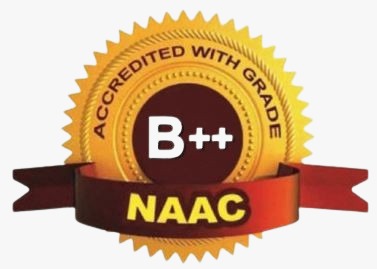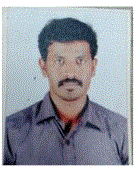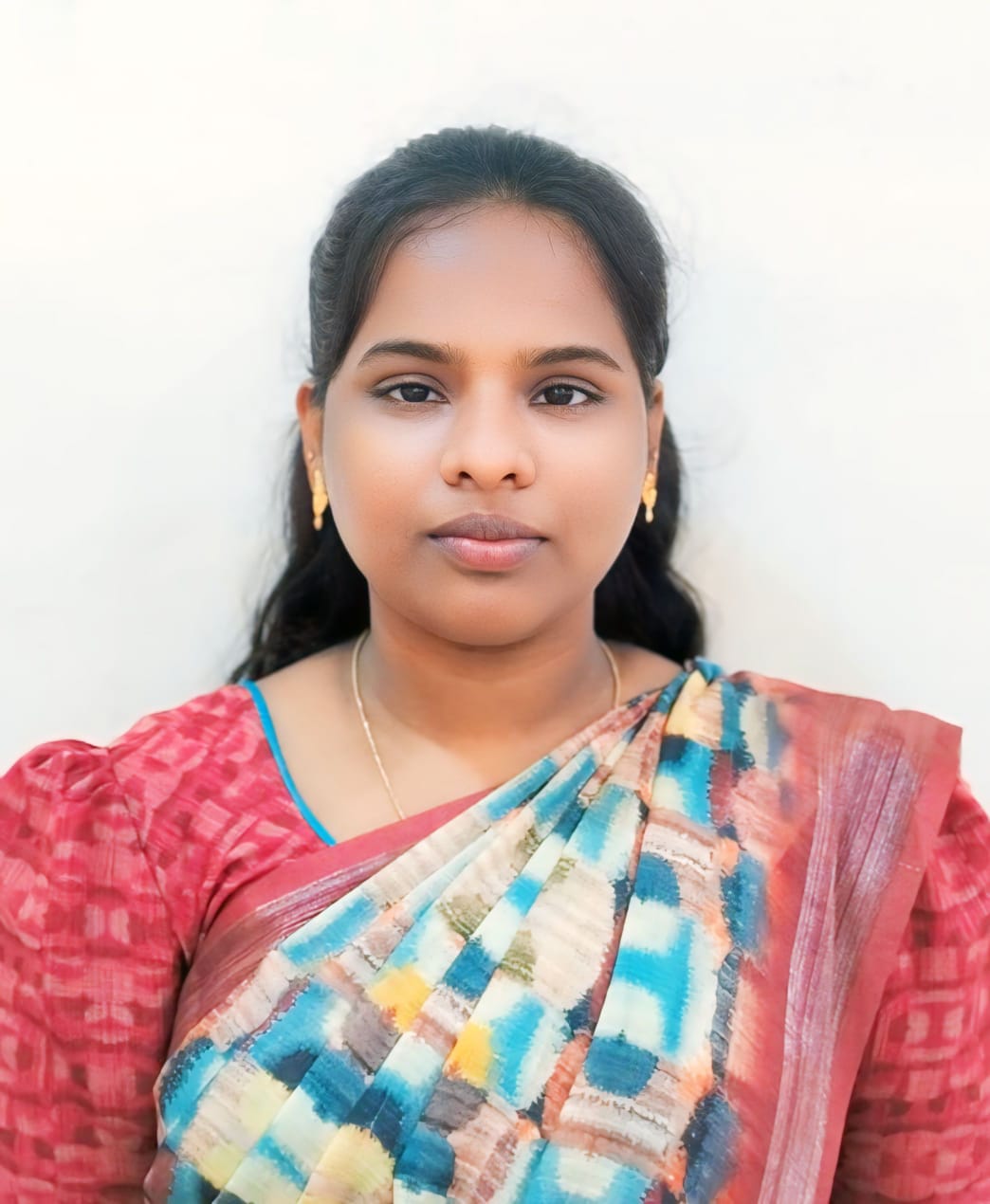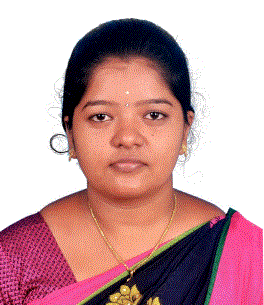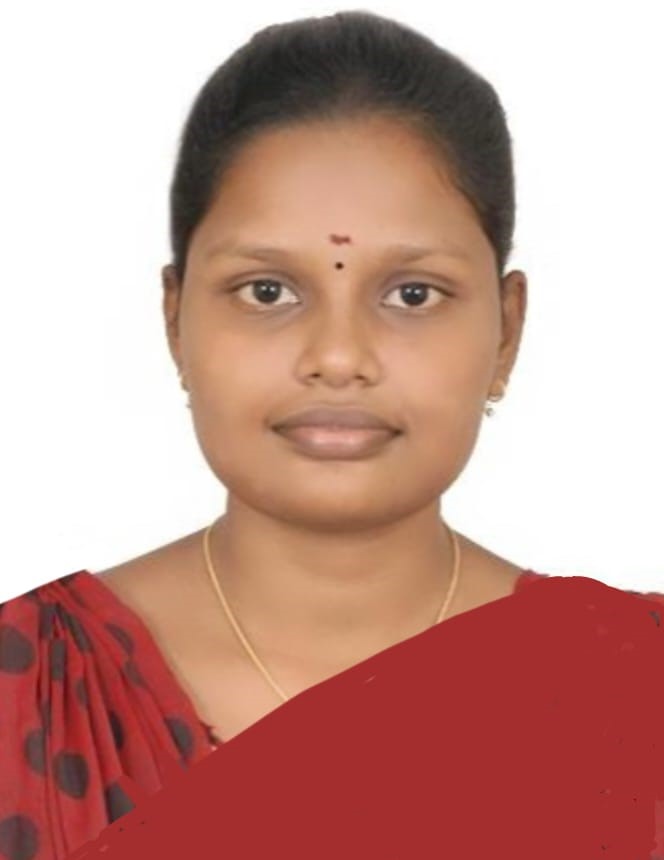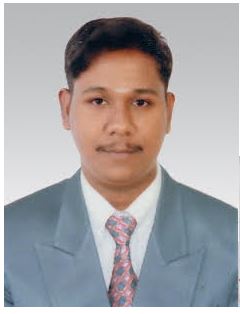Electrical and Electronics Engineering
Course Description
The Department of Electrical & Electronics Engineering was started in the year 2010, with an intake of sixty students. The team of thirteen faculty members of this Department are well qualified and experienced. The Department currently has about 60 students. The Department of EEE is committed to achieving academic excellence in Electrical Engineering and promoting R & D activities. The mission of this Department is to produce Engineers with self-discipline, high integrity and good personality by providing excellent engineering education and training.
The department offers the following courses
- M.E power system Engineering
The Department has well experienced faculty members of proven ability and diverse specialization. The faculty actively involves themselves in research in the fields of Power Systems, and power electronics, IoT, and Embedded Systems
The Laboratories are well equipped with modern training facilities that cater to the requirements of the University syllabus as well as to architect the learning experience of Students. Typically the class strength for theory courses and for laboratory courses is about 30. Having fewer students in theory as well as laboratory classes helps the students to frequently and directly interact with the professors and have their learning processes greatly enhanced.
Vision:
The vision of the Department of Electrical and Electronics Engineering is produce prolific graduates with cutting edge technologies in academic, research and development to meet the societal needs in electrical and electronics engineering sectors.
Mission:
1. To engage the learner in emerging technologies with competent faculty through effective academic process for growing industrial and business environment.
Provide the students with leadership qualities, ethical and human values to serve the nation and focus on students’ overall development
PEO (PROGRAM EDUCATIONAL OBJECTIVE)
Graduates can
1 To provide students with a strong foundation in mathematics, science and engineering, necessary to understand and solve engineering problems in the core and allied areas and prepare the students for a successful career in industries and also for higher studies.
2 To enable the students to apply the knowledge for analyzing and evaluating the existing electrical and electronic systems needed in power electronic drives, variety of controllers, and power systems and to use the expertise gained to create new systems.
3 To provide the students, software skills for taking up research in upcoming areas in the interdisciplinary fields, and for embarking on entrepreneurial ventures with an aptitude for lifelong learning.
PSO (PROGRAM SPECIFIC OUTCOME)
Graduates should be able to
1.Analyze, evaluate and design Electrical and Electronic circuits and machines.
2.Comprehend the structure of power apparatus and systems and analyze their operation, control, protection and utilization.
3.Use of programmable devices, embedded systems and software tools for the simulation, design and building newer electrical and electronic systems leading to research and inventions.
Course Outcomes
| Regulation-2017-UG | |
|---|---|
| YEAR /SEMESTER:II/III | |
| C301-MA8353 TRANSFORMERS AND PARTIAL DIFFERENTIAL EQUATIONS | |
| C301.1 | Understand how to solve the given standard partial differential equations. |
| C301.2 | Solve differential equations using Fourier series analysis which plays a vital role in engineering applications. |
| C301.3 | Appreciate the physical significance of Fourier series techniques in solving one and two dimensional heat flow problems and one dimensional wave equations |
| C301.4 | Understand the mathematical principles on transforms and partial differential equations would provide them the ability to formulate and solve some of the physical problems of engineering. |
| C301.5 | Use the effective mathematical tools for the solutions of partial differential equations by using Z transform techniques for discrete time systems. |
| C302– EE8351 DIGITAL LOGIC CIRCUITS | |
| C302.1 | Ability to design combinational and sequential Circuits. |
| C302.2 | Ability to simulate using software package. |
| C302.3 | Ability to study various number systems and simplify the logical expressions using Boolean functions |
| C302.4 | Ability to design various synchronous and asynchronous circuits. |
| C302.5 | Ability to introduce asynchronous sequential circuits and PLDs |
| C303 –EE8391 ELECTROMAGNETIC THEROY | |
| C303.1 | Ability to understand the basic mathematical concepts related to electromagnetic vector fields. |
| C303.2 | Ability to understand the basic concepts about electrostatic fields, electrical potential, energy density and their applications. |
| C303.3 | Ability to acquire the knowledge in magneto static fields, magnetic flux density, vector potential and its applications. |
| C303.4 | Ability to understand the different methods of emf generation and Maxwell’s equations |
| C303.5 | Ability to understand the basic concepts electromagnetic waves and characterizing parameters |
| C304–EE8301 ELECTRICAL MACHINES I | |
| C304.1 | Ability to analyze the magnetic-circuits. |
| C304.2 | Ability to acquire the knowledge in constructional details of transformers. |
| C304.3 | Ability to understand the concepts of electromechanical energy conversion. |
| C304.4 | Ability to acquire the knowledge in working principles of DC Generator. |
| C304.5 | Ability to acquire the knowledge in working principles of DC Motor |
| C305- EC8353 ELECTRON DEVICES AND CIRCUITS | |
| C305.1 | Explain the structure and working operation of basic electronic devices. |
| C305.2 | Able to identify and differentiate both active and passive elements |
| C305.3 | Analyze the characteristics of different electronic devices such as diodes and transistors |
| C305.4 | Choose and adapt the required components to construct an amplifier circuit. |
| C305.5 | Employ the acquired knowledge in design and analysis of oscillators |
| C306–ME8792 POWER PLANT ENGINEERNG | |
| C306.1 | Explain the layout, construction and working of the components inside a thermal power plant. |
| C306.2 | Explain the layout, construction and working of the components inside a Diesel, Gas and Combined cycle power plants. |
| C306.3 | Explain the layout, construction and working of the components inside nuclar power plants. |
| C306.4 | Explain the layout, construction and working of the components inside Renewable energy power plants. |
| C306.5 | Explain the applications of power plants while extend their knowledge to power plant economics and environmental hazards and estimate the costs of electrical energy production. |
| YEAR/SEMESTER:II/IV | |
| C401-MA8491 NUMERICAL METHODS | |
| C401.1 | Understand the basic concepts and techniques of solving algebraic and transcendental equations. |
| C401.2 | Appreciate the numerical techniques of interpolation and error approximations in various intervals in real life situations. |
| C401.3 | Apply the numerical techniques of differentiation and integration for engineering problems. |
| C401.4 | Understand the knowledge of various techniques and methods for solving first and second order ordinary differential equations. |
| C401.5 | Solve the partial and ordinary differential equations with initial and boundary conditions by using certain techniques with engineering applications. |
| C402- EE8401 ELECTRICAL MACHINES II | |
| C402.1 | Ability to understand the construction and working principle of Synchronous Generator |
| C402.2 | Ability to understand MMF curves and armature windings. |
| C402.3 | Ability to acquire knowledge on Synchronous motor. |
| C402.4 | Ability to understand the construction and working principle of Three phase Induction Motor |
| C402.5 | Ability to understand the construction and working principle of Special Machines |
| C403 – EE8402 TRANSMISSION AND DISTRIBUTION | |
| C403.1 | To understand the importance and the functioning of transmission line parameters. |
| C403.2 | To understand the concepts of Lines and Insulators. |
| C403.3 | To acquire knowledge on the performance of Transmission lines. |
| C403.4 | To understand the importance of distribution of the electric power in power system. |
| C403.5 | To acquire knowledge on Underground Cables |
| C404–EE8403 MEASUREMENTS AND INSTRUMENTATION | |
| C404.1 | To understand the concepts of Fundamentals of electrical and electronic instruments |
| C404.2 | Ability to compare between various measurement techniques |
| C404.3 | To acquire knowledge on Various storage and display devices |
| C404.4 | To understand the concepts Various transducers and the data acquisition systems |
| C404.5 | Ability to model and analyze electrical and electronic Instruments and understand the operational features of display Devices and Data Acquisition System. |
| C405–EE8451 LINEAR INTEGRATED CIRCUITS AND APPLICATION | |
| C405.1 | Ability to analyze the characteristics of Op-Amp. |
| C405.2 | To understand the importance of Signal analysis using Op-amp based circuits. |
| C405.3 | Functional blocks and the applications of special ICs like Timers, PLL circuits, regulator Circuits. |
| C405.4 | To understand and acquire knowledge on the Applications of Op-amp |
| C405.5 | Ability to understand and analyse, linear integrated circuits their Fabrication and Application. |
| C406–IC8451 CONTROL SYSTEMS | |
| C406.1 | Ability to develop various representations of system based on the knowledge of Mathematics, Science and Engineering fundamentals. |
| C406.2 | Ability to do time domain and frequency domain analysis of various models of linear system. |
| C406.3 | Ability to interpret characteristics of the system to develop mathematical model. |
| C406.4 | Ability to design appropriate compensator for the given specifications. |
| C406.5 | Ability to come out with solution for complex control problem. |
| YEAR/SEMESTER:III/V | |
| C501– EE8501 POWER SYSTEM ANALYSIS | |
| C501.1 | Ability to model the power system under steady state operating condition |
| C501.2 | Ability to understand and apply iterative techniques for power flow analysis |
| C501.3 | Ability to model and carry out short circuit studies on power system |
| C501.4 | Ability to model the power system under steady state operating condition |
| C501.5 | Ability to model and understand various power system components and carry out power flow, short circuit and stability studies |
| C502– EE8551 MICROPROCESSOR AND MICROCONTROLLER | |
| C502.1 | Ability to acquire knowledge in Addressing modes & instruction set of 8085 & 8051. |
| C502.2 | Ability to need & use of Interrupt structure 8085 & 8051. |
| C502.3 | Ability to understand the importance of Interfacing |
| C502.4 | Ability to explain the architecture of Microprocessor and Microcontroller. |
| C502.5 | Ability to develop the Microprocessor and Microcontroller based applications |
| C503– EE8552 POWER ELECTRONICS | |
| C503.1 | Ability to analyse AC-AC and DC-DC and DC-AC converters. |
| C503.2 | Ability to choose the converters for real time applications. |
| C503.3 | Operation, switching techniques and basics topologies of DC-DC switching regulators. |
| C503.4 | Different modulation techniques of pulse width modulated inverters and to understand harmonic reduction methods. |
| C503.5 | Operation of AC voltage controller and various configurations |
| C504– EE6591 DIGITAL SIGNAL PROCESSNG | |
| C504.1 | Ability to understand the importance of Fourier transform, digital filters and DS Processors. |
| C504.2 | Ability to acquire knowledge on Signals and systems & their mathematical representation. |
| C504.3 | Ability to understand and analyze the discrete time systems. |
| C504.4 | Ability to analyze the transformation techniques & their computation. |
| C504.5 | Ability to understand the types of filters and their design for digital implementation. |
| C505– CS8392 OBJECT ORIENTED PROGRAMMING | |
| C505.1 | Develop Java programs using OOP principles |
| C505.2 | Develop Java programs with the concepts inheritance and interfaces |
| C505.3 | Build Java applications using exceptions and I/O streams |
| C505.4 | Develop Java applications with threads and generics classes |
| C505.5 | Develop interactive Java programs using swings |
| YEAR /SEMESTER:IV/VI | |
| C601– EE8601 SOLID STATE DRIVES | |
| C601.1 | Ability to select suitability drive for the given application. |
| C601.2 | Ability to study about the steady state operation and transient dynamics of a motor load system. |
| C601.3 | Ability to analyze the operation of the converter/chopper fed dc drive. |
| C601.4 | Ability to analyze the operation and performance of AC motor drives. |
| C601.5 | Ability to analyze and design the current and speed controllers for a closed loop solid state DC motor drive. |
| C602– EE8602 PROTECTION AND SWITCHGEAR | |
| C602.1 | Ability to understand and analyze Electromagnetic and Static Relays. |
| C602.2 | Ability to suggest suitability circuit breaker. |
| C602.3 | Ability to find the causes of abnormal operating conditions of the apparatus and system |
| C602.4 | Ability to study about the apparatus protection, static and numerical relays. |
| C602.5 | Ability to acquire knowledge on functioning of circuit breaker. |
| C603– EE8691 EMBEDDED SYSTEMS | |
| C601.1 | Ability to understand and analyze Embedded systems. |
| C601.2 | Ability to suggest an embedded system for a given application. |
| C601.3 | Ability to operate various Embedded Development Strategies |
| C601.4 | Ability to study about the bus Communication in processors. |
| C601.5 | Ability to acquire knowledge on various processor scheduling algorithms. |
| YEAR /SEMESTER:IV/VII | |
| C701– EE8701 HIGH VOLTAGE ENGINEERING | |
| C701.1 | Ability to understand Transients in power system. |
| C701.2 | Ability to understand Generation and measurement of high voltage. |
| C701.3 | Ability to understand High voltage testing. |
| C701.4 | Ability to understand various types of over voltages in power system. |
| C701.5 | Ability to measure over voltages. |
| C702– EE8702 POWER SYSTEM AND CONTROL | |
| C702.1 | Ability to understand the day-to-day operation of electric power system. |
| C702.2 | Ability to analyze the control actions to be implemented on the system to meet the minute-to-minute variation of system demand. |
| C702.3 | Ability to understand the significance of power system operation and control. |
| C703– EE8703 RENEWABLE ENERGY SYSTEMS | |
| C703.1 | Ability to create awareness about renewable Energy Sources and technologies. |
| C703.2 | Ability to get adequate inputs on a variety of issues in harnessing renewable Energy. |
| C703.3 | Ability to recognize current and possible future role of renewable energy sources. |
| C703.4 | Ability to explain the various renewable energy resources and technologies and their applications. |
| C703.5 | Ability to understand basics about biomass energy. |
| YEAR /SEMESTER:IV/VIII | |
| C801– EE881 PROJECT WORK | |
| C801.1 | On Completion of the project work students will be in a position to take up any challenging practical problems and find solution by formulating proper methodology |
| C802– EE8011 FLEXIBLE AC TRANSMISSION SYSTEM | |
| C802.1 | Ability to understand and apply computing platform and software for engineering problems. |
| C802.2 | Ability to understand the concepts of Architecture of PIC microcontroller |
| C802.3 | Ability to acquire knowledge on Interrupts and timers. |
| C802– EE8017 HIGH VOLTAGE DIRECT CURRENT AND TRANSMISSION | |
| C802.1 | Ability to understand the principles and types of HVDC system. |
| C802.2 | Ability to analyze and understand the concepts of HVDC converters. |
| C802.3 | Ability to acquire knowledge on DC link control. |
PROGRAMME OUTCOMES(POs)
Po Graduate Attribute
1.Engineering Knowledge:Apply the knowledge of mathematics, science, engineering fundamentals, and an engineering specialization to the solution of complex engineering problems.
2.Problem Analysis: Identify, formulate, review research literature, and analyze complex engineering problems reaching substantiated conclusions using first principles of mathematics, natural sciences, and engineering sciences
3.Design/ Development of Solutions: Ability to design an irrigation system to meet the desired needs within realistic Constraints such as economic, environmental, social, political, ethical, and sustainability considerations
4.Conduct investigations complex problems: Ability to think creatively, to formulate problem statements, to communicate effectively, to synthesize information, and to evaluate agricultural systems.
5.Modern Tool Usage: Ability to function in interdisciplinary teams within the Institute and also with other organizations at National/ International level while planning the research projects.
6.The Engineer and Society: Ability to use the techniques, skills and modern engineering tools necessary for Agricultural engineering practice.
7.Environment and Sustainability: Will develop competencies in computer and automatic control systems, information systems, mechanical systems, natural resource systems to solve engineering problems.
8.Ethics : Graduates will be able to express themselves clearly in oral and verbal communication needs.
9.Individual and Team Work: Ability to devise a strategy or action plan to utilize the acquired knowledge in increasing water- use efficiency, farm mechanization and Post harvest technology etc.
10.Communication: Demonstrate knowledge and understanding of the engineering and management principles and apply these to one’s own work, as a member and leader in a team, to manage projects and in multidisciplinary environments.
11.Project Management and Finance: Demonstrate knowledge and understanding of the engineering and management principles and apply these to one’s own work, as a member and leader in a team, to manage projects and in multidisciplinary environments.
12.Life-long Learning: Recognize the need for, and have the preparation and ability to engage in independent and life-long learning in the broadest context of technological change.
Curriculum Details
| S.NO | Regulation | File |
|---|---|---|
| 1. | B.E.-EEE-2021 | Click here |
| 2. | B.E.-EEE-R2017 | Click here |
| 3. | M.E. POWER SYSTEMS ENGINEERING 2017 | Click here |
| 4. | M.E. POWER SYSTEMS ENGINEERING 2021.pdf | Click here |
Value Added Courses
| S.No | Name of the course | No of students | Duration(hours) |
|---|---|---|---|
| 1 | Unxt programme by Unnati foundation | 7 | 90 |
| 2 | IABS-Integrated Approach to Building Services | 46 | 112 |
| 3 | Microsoft Office | 60 | 30 |
Innovative teaching
Innovative teaching embodies a proactive approach aimed at seamlessly integrating cutting-edge teaching strategies and methods, widely acknowledged as a fundamental avenue for attaining a competitive advantage.
• Embracing Innovative Teaching Approaches : Proactively integrating novel teaching strategies and methodologies is a recognized method for gaining a competitive edge in education.
• Leveraging Technology-Enhanced Learning : Faculty effectively utilizes advanced ICT-based teaching tools, including smart classrooms and LCD projectors, to enhance the learning experience and contribute to students' academic improvement.
• Enabling Blended Learning Environments : Our Wi-Fi-enabled campus fosters blended learning, offering access to e-learning websites and resources that complement traditional classroom instruction.
• Utilizing Google Classroom Integration :We employ Google Classroom, an application designed to enhance the learning journey. It facilitates interactive engagement with students through the sharing of technical content, lecture notes, and assignments.
• Promoting Continuous Learning : Both faculty members and students engage in online courses offered by NPTEL within their areas of interest. This practice allows them to stay updated on current trends and develop expertise across multiple domains.
• Enriching Learning Through Webinars : Engaging webinars complement conventional classroom teaching, serving as an effective medium for knowledge transfer and interactive learning experiences.
• Encouraging Professional Development : Faculty members are actively encouraged to participate in Faculty Development Programs (FDPs), short-term courses, and staff development initiatives on advanced topics. This ensures that they remain well-equipped with the latest knowledge and skills.
Laboratory Details
Our department has eight well equipped laboratories
1. Engineering practices laboratory:
The Engineering practices laboratory of the college is well equipped with modern energy-efficient farm machines like work Pieces,Welding Electrodes, Welding Machine,Tongs,Wire Brush, Chipping Hammer, Gloves and Goggles
2. Power system simulation laboratory:
MATLAB Software-Tap.
3. Electrical Machines laboratory:
This lab is well equipped with equipment like DC Shunt Motor, Three phase induction motor, DC Series motor, Single phase induction motor, Synchronous motor, Squirrel cage induction motor, single phase transformer ,three phase transformer.
4. Power electronics laboratory:
This lab is essential as soil possess a variety of physical properties of soil. Soil mechanics lab is well equipped with all equipments required for identification and classification of soils.
5. Control and instrumentation laboratory:
The Hydraulic weight tester, Twin rotor system, Transducer , Strain gauges, Thermo couple wire
6. Renewable energy system laboratory:
A laboratory with models of solar resource assessment set up, solar array simulator, solar PV analyzer , MPPT, Solar street light system, Wind turbine, Fuel cell kit

